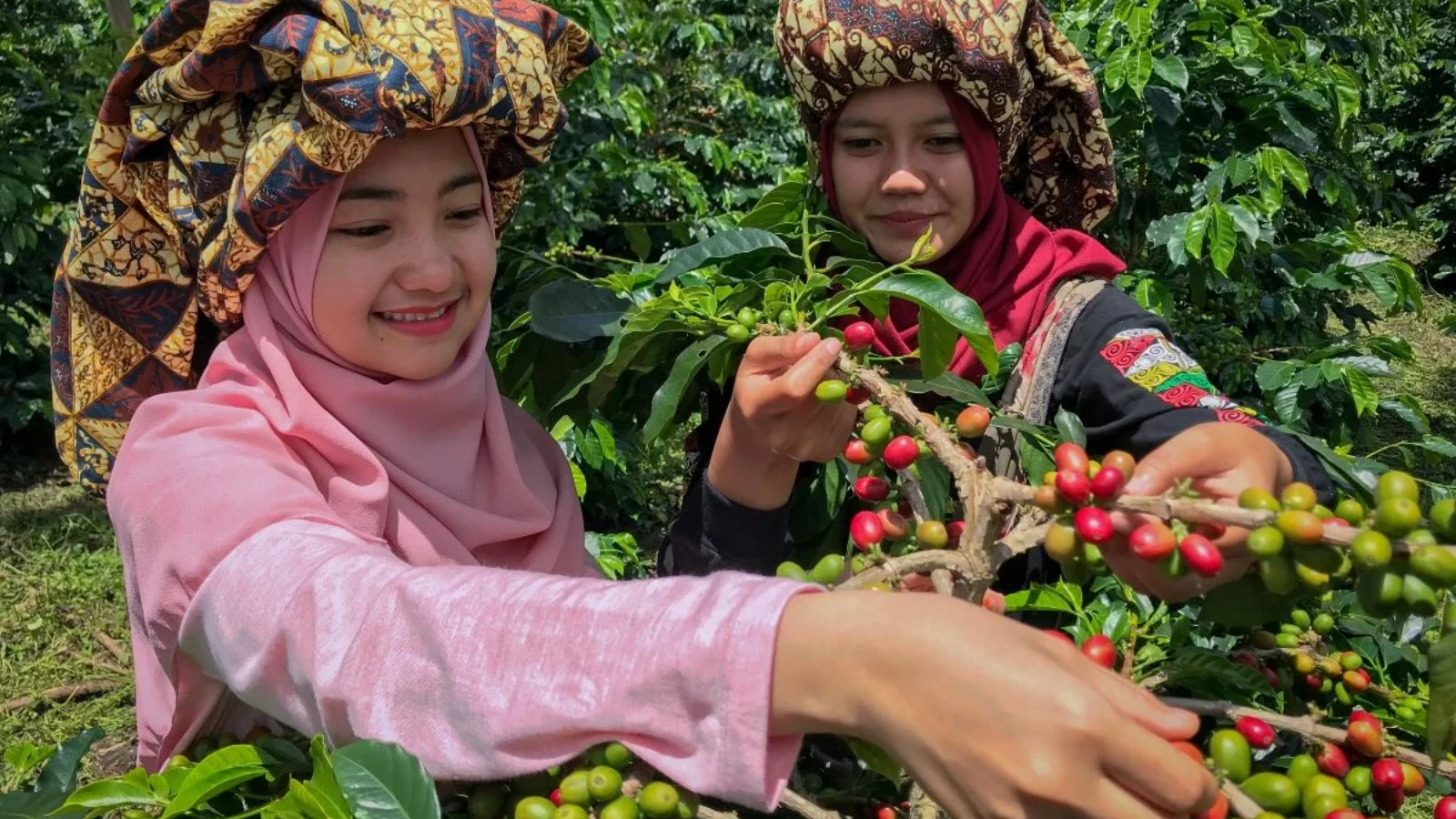Unveiling Sumatra Coffee: Exploring Flavor, Tradition, and Sustainablity

What Is Sumatra Coffee?
Sumatra coffee, hailing from the Indonesian island of Sumatra, is renowned for its distinctive flavor profile and unique processing methods. This coffee is one of the world’s most sought-after due to its rich, full-bodied taste and low acidity. It is celebrated not just for its taste but also for the traditions and sustainable practices associated with its cultivation and production.
Sumatra coffee is primarily produced in the Aceh and North Sumatra regions. The island’s diverse climate, with its volcanic soil and tropical weather, provides the perfect conditions for growing high-quality Arabica coffee beans. Unlike other coffee-producing regions, Sumatra utilizes unique processing techniques, such as wet-hulling, which contribute to its characteristic earthy and spicy flavor.
Sumatra coffee has played a significant role in the global coffee industry for centuries. Introduced by Dutch colonists in the 18th century, coffee quickly became a major export product for Sumatra. The unique growing conditions and processing methods set Sumatra coffee apart from other regions, making it a staple in specialty coffee shops worldwide.
Sumatra’s rich cultural heritage deeply influences its coffee production. The traditional methods of farming and processing are passed down through generations, maintaining a strong connection to the island’s history and people. The local communities are often involved in every step of the coffee production process, from cultivation to processing, ensuring that the cultural essence of Sumatra is embedded in every cup of coffee.
The Criteria of Sumatra Coffee
For coffee to be classified as authentic Sumatra coffee, it must meet specific criteria:
- Geographical Origin: The coffee must be grown in the recognized regions of Aceh or North Sumatra.
- Processing Method: Traditional wet-hulling (locally known as “Giling Basah”) is a key process that defines Sumatra coffee.
- Bean Quality: The beans must exhibit the characteristic flavor profile of Sumatra coffee, including earthy, spicy, and chocolatey notes.
Flavor Profiles and Aromas
Sumatra coffee offers a unique and complex flavor profile that appeals to coffee connoisseurs:
- Flavor: Expect deep, rich flavors with notes of dark chocolate, earthy undertones, and hints of spices like cinnamon and nutmeg.
- Aroma: The aroma of Sumatra coffee is equally captivating, with a robust, slightly smoky scent that often carries notes of sweet herbs and dark fruits.
Unique Growing Conditions and Terroir
Sumatra’s unique terroir significantly influences the quality and flavor of its coffee:
- Volcanic Soil: The rich, volcanic soil provides essential nutrients that contribute to the coffee’s robust flavor.
- Tropical Climate: The island’s tropical climate, with ample rainfall and consistent temperatures, creates an ideal environment for coffee cultivation.
- Altitude: Coffee plantations in Sumatra are often situated at high altitudes, between 800 to 1,500 meters above sea level, which enhances the coffee’s flavor complexity.
Processing Methods: Wet-Hulling and Sun-Drying Techniques
Sumatra coffee’s unique processing methods are crucial to its distinctive taste:
- Wet-Hulling: This traditional method involves removing the parchment layer from the beans while they are still wet. This process enhances the coffee’s earthy and spicy notes and gives it a unique texture.
- Sun-Drying: After wet-hulling, the beans are spread out to dry in the sun. This natural drying method helps to develop the coffee’s rich and complex flavors.
Sumatra Coffee Producer Countries and Famous Brands
Origin Countries of Sumatra Coffee
While Sumatra coffee is primarily associated with Indonesia, its influence and production techniques have spread to other countries. However, authentic Sumatra coffee must originate from the specific regions within the island of Sumatra, Indonesia. These areas include:
- Aceh: Known for its high-quality Gayo coffee, which is produced in the Gayo Highlands.
- North Sumatra: Including regions like Mandheling and Lintong, famous for their distinct coffee profiles.
Prominent Sumatra Coffee Brands
Several brands have gained international acclaim for their Sumatra coffee products:
- Starbucks: Known for offering a variety of Sumatra coffee options, including single-origin and blends.
- Peet’s Coffee: Offers Sumatra coffee with a focus on dark roasts, highlighting the bold and rich flavors.
- Stumptown Coffee Roasters: Provides meticulously sourced and roasted Sumatra beans, emphasizing sustainability and quality.
- Koffee Kult: Specializes in small-batch roasting, ensuring a high-quality Sumatra coffee experience.
The Detailed Production Process of Sumatra Coffee

Cultivation: Farming Practices and Plantation Management
Sumatra coffee farming practices are a blend of tradition and sustainability:
- Farming Practices: Sumatra farmers often use organic farming methods, avoiding synthetic fertilizers and pesticides. Shade-grown techniques are common, preserving the natural ecosystem.
- Plantation Management: Plantations in Sumatra are typically small-scale, family-run farms. Farmers use traditional knowledge and practices to manage their coffee plants, ensuring high-quality yields.
Harvesting Techniques and Timing
Harvesting in Sumatra is done carefully to ensure the highest quality beans:
- Hand-Picking: The cherries are hand-picked to select only the ripe ones, ensuring the best flavor development.
- Timing: Harvesting usually occurs during the dry season, from June to December, to take advantage of the optimal weather conditions for drying the beans.
Post-Harvest Processing: Sorting, Wet-Hulling, and Drying
Post-harvest processing is a critical stage in Sumatra coffee production:
- Sorting: After harvesting, the cherries are sorted to remove any defective or unripe ones.
- Wet-Hulling: The beans undergo the wet-hulling process, which involves removing the parchment layer while the beans are still wet.
- Drying: The hulled beans are spread out to dry in the sun, a process that can take several days, depending on the weather conditions.
Artisanal Techniques
Sumatra coffee production is steeped in artisanal techniques:
- Hand-Roasting: Some farmers roast their coffee beans in small batches using traditional methods, enhancing the flavor and aroma.
- Custom Blending: Artisans often create custom blends of Sumatra coffee, combining beans from different regions to achieve unique flavor profiles.
Global Market Dynamics of Sumatra Coffee
Sumatra coffee holds a significant position in the global coffee market:
Demand Trends in the Global Market
- Growing Popularity: The demand for Sumatra coffee has been steadily increasing due to its unique flavor profile and sustainable production methods.
- Specialty Coffee Shops: Many specialty coffee shops and roasters around the world feature Sumatra coffee, catering to consumers who appreciate high-quality, distinctive coffee.
Consumer Preferences and Emerging Markets
- Flavor Diversity: Consumers are increasingly seeking out coffee with unique and diverse flavors, making Sumatra coffee a popular choice.
- Emerging Markets: New markets in Asia and the Middle East are showing a growing interest in specialty coffee, including Sumatra varieties.
Impact of Sustainability and Ethical Practices
- Sustainability Initiatives: The focus on sustainable farming and ethical practices is enhancing the appeal of Sumatra coffee in the global market.
- Fair Trade: Many Sumatra coffee producers are adopting Fair Trade practices, ensuring better prices and conditions for farmers.
Health Benefits
Sumatra coffee offers several health benefits:
- Antioxidants: Rich in antioxidants, Sumatra coffee helps combat oxidative stress and reduce inflammation.
- Mental Alertness: The caffeine content in Sumatra coffee can improve mental alertness and concentration.
- Heart Health: Regular consumption of Sumatra coffee in moderation may support heart health by reducing the risk of certain cardiovascular diseases.
FnB Coffee: Sourcing Excellence from Sumatra
FnB Coffee is dedicated to sourcing the finest Sumatra coffee while promoting ethical and sustainable practices:
Ethical Sourcing Practices
- Direct Trade: FnB Coffee works directly with farmers in Sumatra, ensuring fair prices and fostering long-term relationships.
- Organic Farming: The company supports organic farming practices, minimizing the environmental impact and promoting biodiversity.
Quality Control Measures
- Rigorous Testing: FnB Coffee employs rigorous quality control measures, from bean selection to roasting, ensuring the highest standards.
- Sustainable Packaging: The company uses sustainable packaging materials, reducing waste and environmental impact.
Promoting Sustainability and Supporting Local Communities
- Community Initiatives: FnB Coffee invests in local communities by supporting education, healthcare, and infrastructure projects.
- Environmental Conservation: The company is committed to environmental conservation, implementing practices that protect the natural habitat and biodiversity of Sumatra.
Where to Buy Sumatra Coffee
There are several top sources for purchasing Sumatra coffee, whether you prefer online shopping or visiting a local café:
Online Retailers and Brick-and-Mortar Shops Offering Sumatra Coffee
- Online Retailers: Websites like Amazon, Blue Bottle Coffee, and Stumptown Coffee Roasters offer a wide range of Sumatra coffee options.
- Brick-and-Mortar Shops: Specialty coffee shops and stores, such as Peet’s Coffee and local roasteries, often carry Sumatra coffee.
Specialty Cafes or Stores Known for Their Sumatra Coffee Selection
- Specialty Cafes: Cafes like Starbucks Reserve and independent coffee shops frequently feature Sumatra coffee on their menus.
- Gourmet Stores: Gourmet food stores and markets often have a selection of high-quality Sumatra coffee for discerning buyers.
You can also get this high-quality whole bean coffee directly from FnB Coffee, a coffee exporter with the largest coffee plantation in Sumatra. We also focus on providing every type of coffee beans from Sumatra that many people favor, be it Robusta or Arabica coffee types.
No need to wait any longer. Don’t hesitate to enjoy the uniqueness of every sip and the fragrant aroma of this unique coffee from the land of Sumatra!










 Arabic
Arabic Chinese (Simplified)
Chinese (Simplified) Dutch
Dutch English
English French
French German
German Indonesian
Indonesian Italian
Italian Japanese
Japanese Portuguese
Portuguese Russian
Russian Spanish
Spanish